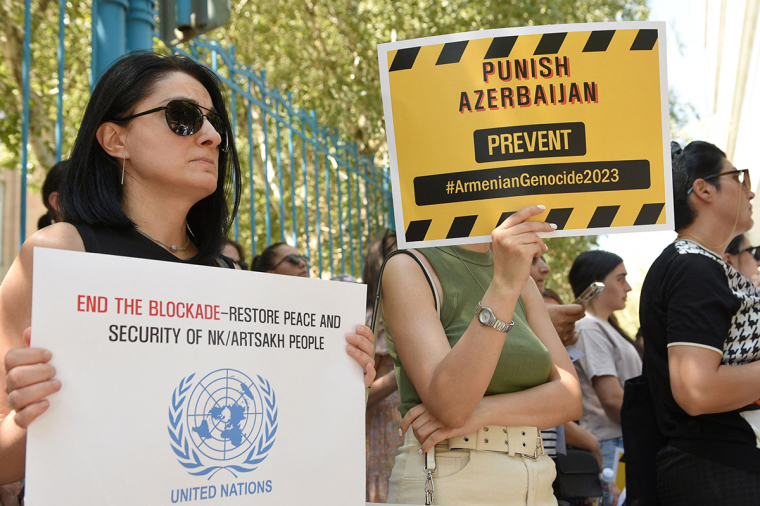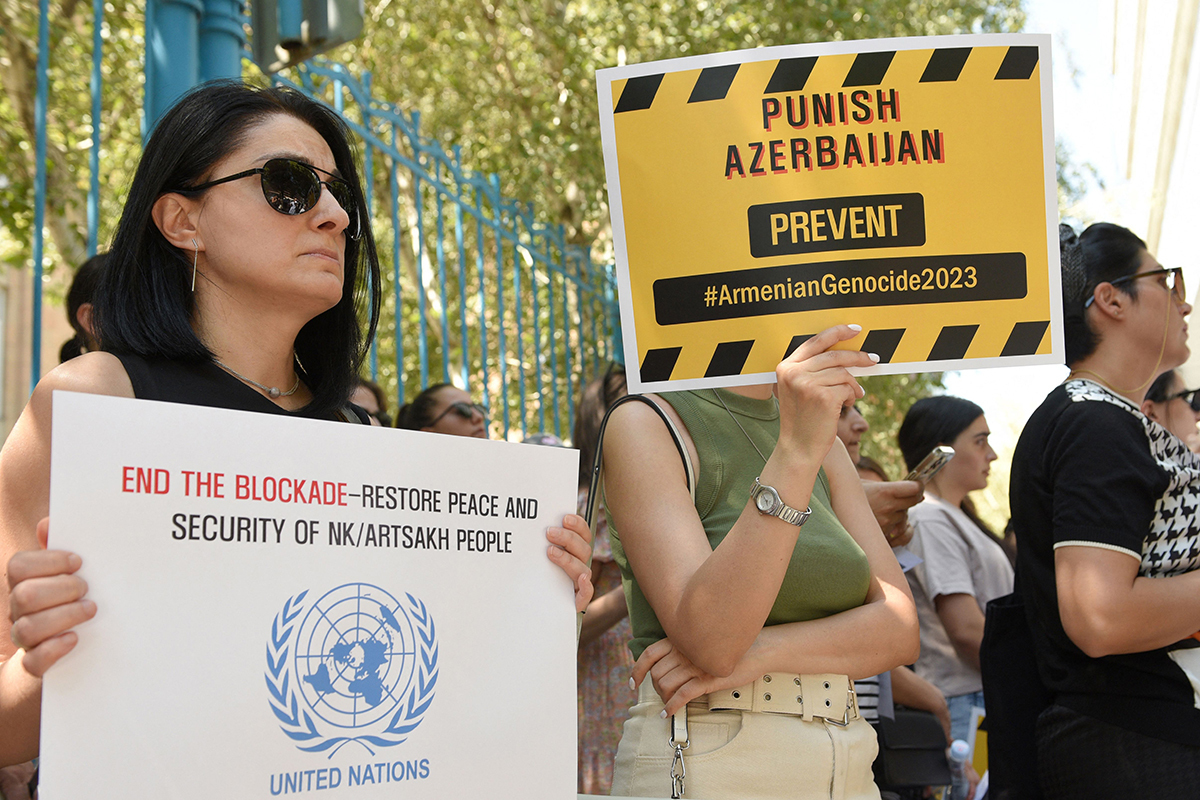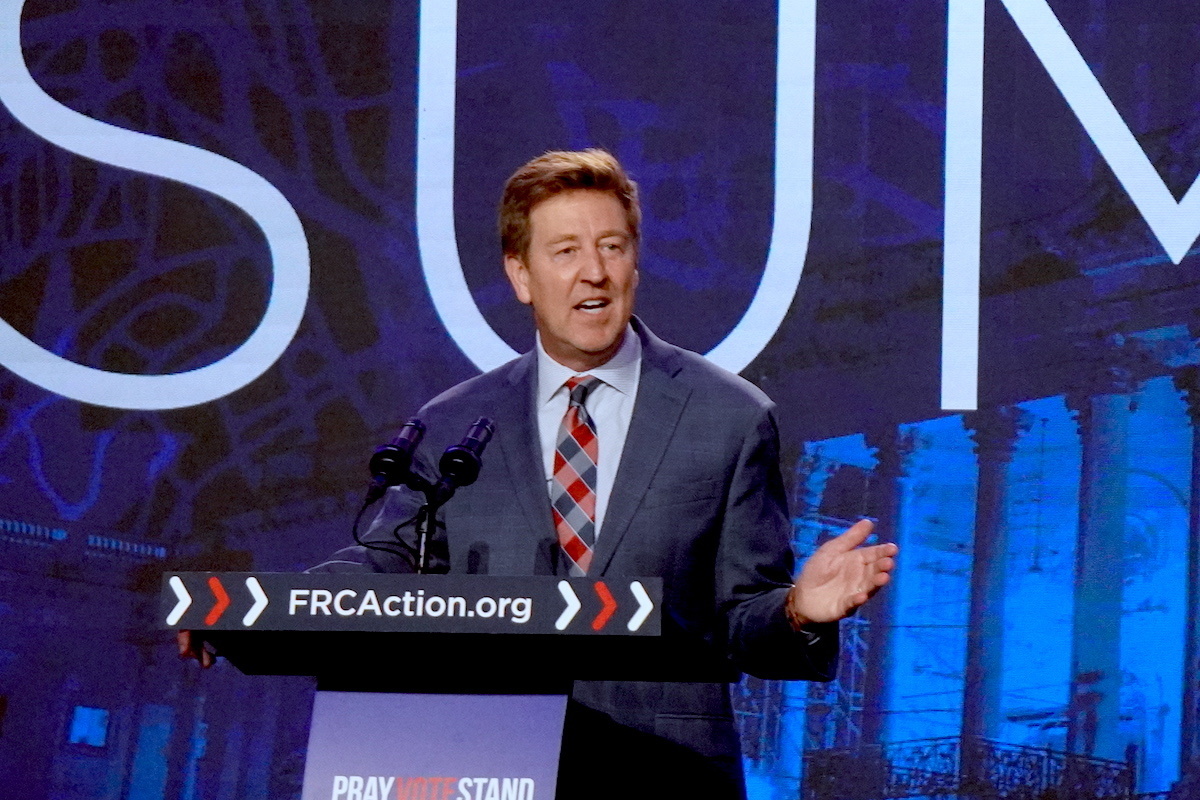
Armenian separatists in the breakaway region of Nagorno-Karabakh have agreed to disarm, bringing about a ceasefire following a 24-hour offensive by Azerbaijani forces that human rights activists were concerned could have genocidal implications.
Ethnic Armenians in Nagorno-Karabakh agreed to a ceasefire brokered by Russian peacekeepers on Wednesday after Azerbaijan forces seized several strategic points in the territory that Armenians call the Republic of Artsakh, Reuters reports. The ceasefire went into effect at 1 p.m. local time on Wednesday.
The region is recognized internationally as part of Muslim-majority Azerbaijan even though it has a majority Armenian population. It’s been controlled by ethnic Armenians as the unrecognized Republic of Artsakh, a de facto independent state not recognized by the United Nations.
Under the terms of the agreement, separatist forces must completely disband and disarm. Meanwhile, Armenian troops must pull out of the region, although Armenia insists it doesn’t have forces in the territory.
In a statement, the Republic of Artsakh said it agreed to the ceasefire after its forces suffered casualties.
“Unfortunately, the Artsakh side also suffered losses and injuries, and in some areas the enemy managed to penetrate the combat positions of the defense army, capture a number of heights and strategic road junctions,” the statement reads.
“In the current situation, the actions of the international community to end the war and resolve the situation are inadequate. Considering all this, the authorities of the Republic of Artsakh accept the proposal of the command of the Russian peacekeeping contingent to cease fire.”
Reports have conflicted on how many casualties resulted from the offensive. Armenian officials reported at least 32 people killed and 200 injured, including seven civilians. Meanwhile, a separatist official claimed on social media that over 200 were killed, including 10 civilians and five children, and 400 wounded.
Azerbaijan’s army claimed to have captured over 90 positions from the Armenian separatists.
Before the ceasefire, a Switzerland-based Christian human rights organization issued a genocide alert for 120,000 Armenian Christians in Nagorno-Karabakh following the full-scale military attack.
On Tuesday, Christian Solidarity International President John Eibner warned of imminent genocide if Azerbaijan’s allies and commercial partners do not take immediate action, including the United States, the United Kingdom, Russia, the European Union, Israel and Switzerland.
“Genocide is imminent,” Eibner said in a statement to The Christian Post.
The Minister of Health for the Republic of Artsakh, Vardan Tadevosyan, told CSI that the capital city of Stepanakert was under continuous artillery bombardment.
Azerbaijan’s Defense Ministry claimed the military operation was to “neutralize [the] military infrastructure” of the Armenians and “restore the constitutional order of the Republic of Azerbaijan.”
Elchin Amirbayov, a senior spokesman for Azerbaijan’s president, had earlier predicted that “a genocide may happen” if Nagorno Karabakh’s elected leaders do not submit.
CSI observed Azerbaijan’s blockade of the Lachin Corridor, the sole road connecting Nagorno Karabakh to the outside world, during their visit to Armenia last week. The blockade began last winter.
“For nine months, the major powers have done nothing to end this siege, or avert this very predictable outcome,” CSI’s Joel Veldkamp said.
CSI and nine other human rights groups issued a genocide warning for the Armenian Christians of Nagorno Karabakh on Dec. 19, 2022.
“Despite this early and clear warning, the world failed to respond,” Veldkamp believes.
The U.S. State Department’s Acting Assistant Secretary for European Affairs, Yuri Kim, had stated that the U.S. would not tolerate any actions against the Armenian population of Nagorno-Karabakh.
“The U.S. will not countenance any action or effort — short-term or long-term — to ethnically cleanse or commit other atrocities against the Armenian population of Nagorno-Karabakh,” Kim said in a Senate Foreign Relations Committee hearing last Thursday.
The Nagorno-Karabakh conflict is a long-standing dispute between Armenia and Azerbaijan over the Nagorno-Karabakh region.
Azerbaijan regained control of territories surrounding Nagorno-Karabakh after a six-week war with Armenia in 2020. A Russia-brokered armistice left the region connected to Armenia only by the Lachin Corridor, where Russian peacekeepers were supposed to ensure free movement.
Last December, alleged demonstrators from Azerbaijan blocked the Lachin Corridor, and Baku later established a military checkpoint there, a move criticized by the U.S. State Department and other international actors.
Luis Moreno Ocampo, an Argentine lawyer who served as the prosecutor of the International Criminal Court from 2003 to 2012, told members of U.S. Congress this month that the blockade impedes access to food and other essentials, contending that the intent of the Azerbaijan leadership to starve the Armenians is a genocidal action.
“There are many different forms of genocide. One form requires zero victim,” he said. “Genocide, under Article 2-C, requires just to create the conditions to destroy the people. The crime is to create the conditions, and blocking the Lachin Corridor with the life system for the Nagorno-Karabakh people is exacting the conditions.”
Free Religious Freedom Updates
Join thousands of others to get the FREEDOM POST newsletter for free, sent twice a week from The Christian Post.




























![[Video] More – Aghogho » GospelHotspot](https://gospelhotspot.net/wp-content/uploads/2024/04/More-Aghogho.jpeg)
















